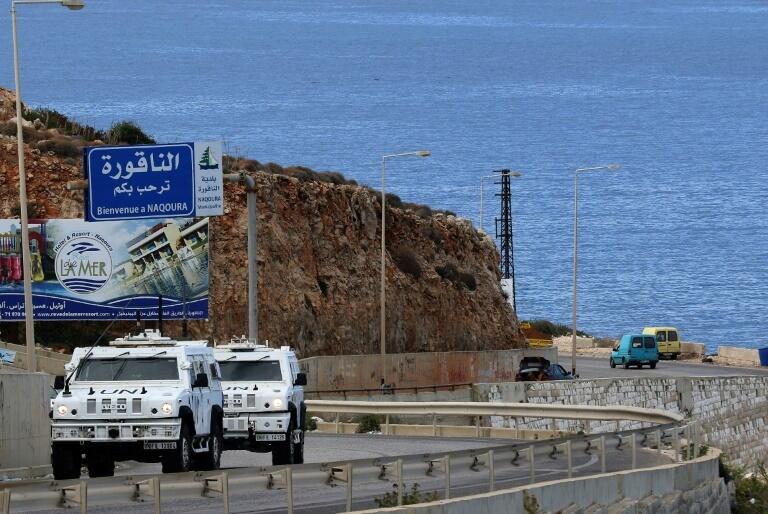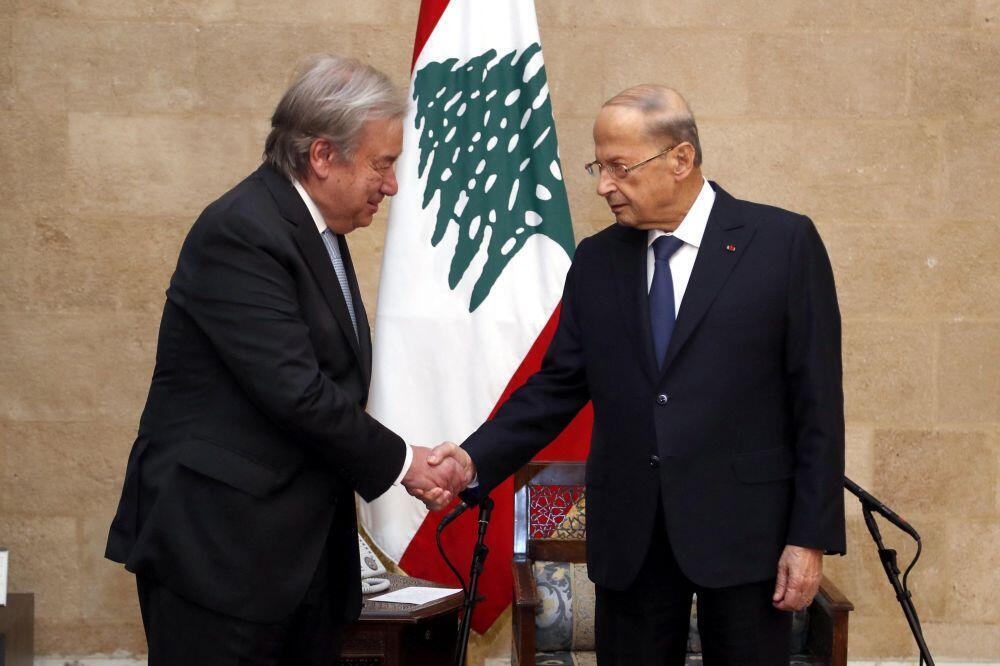Getting your Trinity Audio player ready...
Lebanese President Michel Aoun said Monday that Beirut is committed to continuing indirect talks with Israel over demarcating the maritime borders of the Mediterranean neighbors.
Aoun made the remarks during a joint press conference with UN Secretary-General Antonio Guterres at the presidential palace in Baabda, east of the capital Beirut.
2 View gallery


UN peacekeepers patrol the coast road near Naqura, the last town in Lebanon before the border with Israel
(Photo: AFP)
"When it comes to the situation with Israel, I reiterated to his excellency [Guterres] the commitment of Lebanon to continue the resolution 1701 [UN Security Council resolution intended to resolve the 2006 Lebanon War] and all of its aspects — maintain stability on the southern border and the cooperation between the Lebanese army and UNIFIL [United Nations Interim Force in Lebanon]," Aoun said.
"I also denounce the Israeli violations on land, air and sea and primarily the use of Lebanese air space to target Syria," Aoun added.
Guterres also met Monday with Prime Minister Najib Mikati as he reaffirmed the world body's support for the crisis-hit country, while urging that the parliamentary elections take place on time — legislators voted in October to bump up next year's elections from May 8 to March 27.
2 View gallery


Lebanon's President Michel Aoun (R) greeting UN Secretary-General Antonio Guterres during a visit to the presidential palace in Baabda, east of the capital Beirut
(Photo: AFP)
At stake in the maritime talks are potentially lucrative natural gas reserves that Lebanon wants to tap as the country endures a devastating economic and fiscal crisis that the World Bank calls one of the worst in a century.
The United States is organizing the indirect maritime border talks.
The current American mediator, Amos Hochstein, reportedly told both sides that he will give up on seeking a resolution to the dispute if a deal is not reached by the March parliamentary elections.

